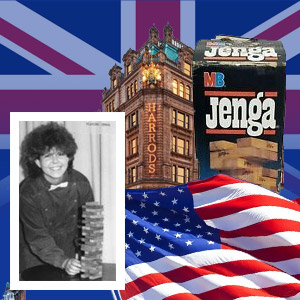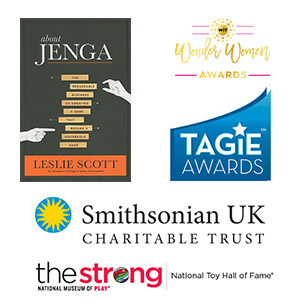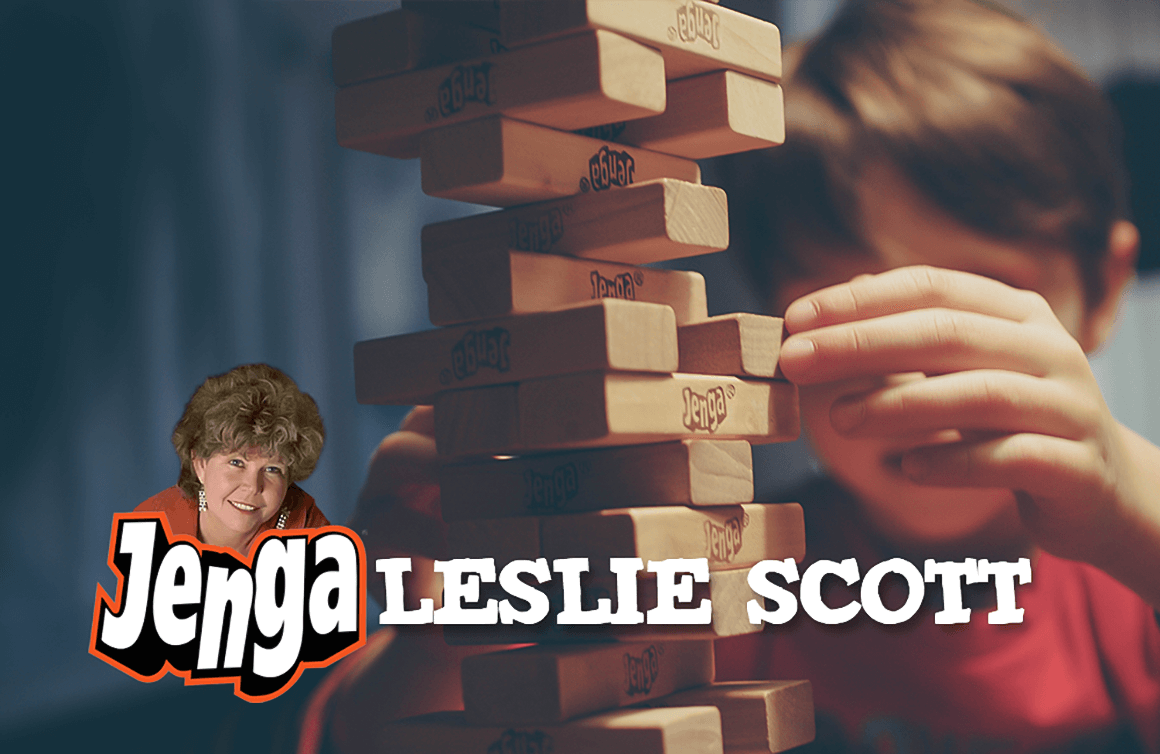Leslie Scott turned childhood play with wooden building blocks into Jenga, a game that continues to attract board game enthusiasts of all ages almost four decades after its initial release.

Vital Stats
Born 1955 in Tanganyika (now known as Tanzania), a formerly British-occupied territory located in Africa.

Origin Story
Scott played ad hoc games with her family in the 1970s using wooden blocks from a nearby sawmill in Takoradi, Ghana. She created Jenga, a game of skill involving stacked wooden blocks, based on those early days of play.
The name Jenga is derived from the Swahili word, “kujenga”, which means “to build”.

Building A Dream
Early supporters of Jenga included Harrods department store in London, which began selling the game in 1982.
Scott founded Leslie Scott Associates and showcased Jenga at the 1983 London Toy & Hobby Fair.
Jenga launched in North America in 1986.

Branching Out
Scott evolved her company to become Oxford Games Ltd in 1991. The UK-based board game company went on to publish over forty games including Ex Libras, Bookworm, Playing Shakespeare, The Hieroglyphs Game, and others.

Legacy
The V&A Museum of Childhood acquired an original Jenga set for its collections in 1982.
Scott published her book, About Jenga: The Remarkable Business of Creating a Game that Became a Household Name, in 2009.
She received the 2010 Wonder Women of Toys Inventor/Designer Award and the 2012 TAGIE award for Excellence in Game Design.
Scott is a founder trustee of The Smithsonian UK Charitable Trust.
Jenga was inducted to the National Toy Hall of Fame at The Strong in November 2020.

